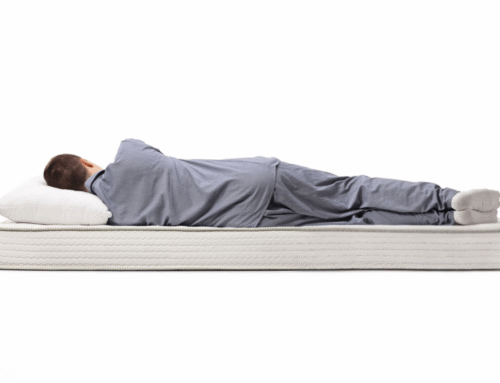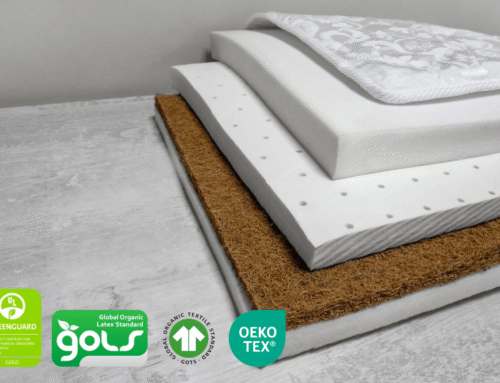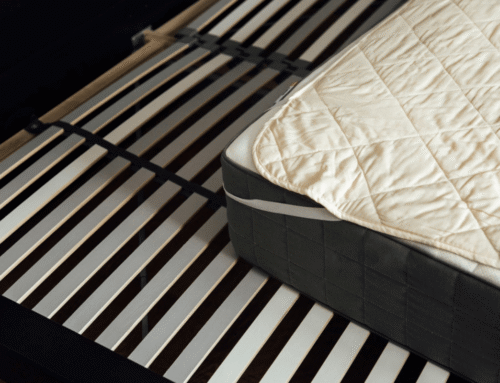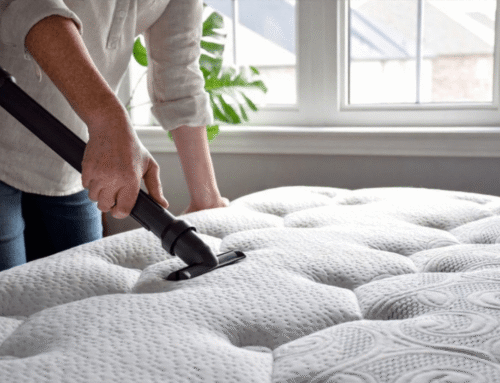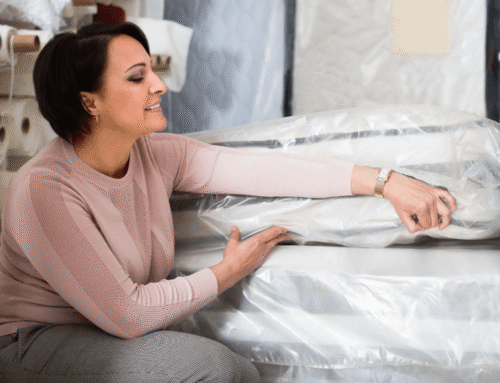Shopping for a mattress can feel confusing. There are so many types to look at, like foam, latex, hybrid, and now organic. People sometimes ask if organic is really worth it or if it’s just another label. The answer depends on what matters most to them, including the choice of features and benefits found in an organic mattress and reasons to buy it.
Organic mattresses use natural materials and cut out harmful chemicals. For someone with allergies or sensitive skin, that can mean fewer issues at night. And because they’re made with cleaner methods, they also put less strain on the environment, which is good for anyone who cares about sustainability. It’s not only about how soft or firm the bed feels. It’s also about choosing what’s safe and responsible in the long run. And while it may seem like just another label, an organic mattress can bring real peace of mind. Let’s explore what makes it a smart choice for better sleep and cleaner living.
Key Takeaways
- An organic mattress uses natural materials like cotton, wool, or latex. It avoids harsh chemicals and can help keep the air around you cleaner.
- These mattresses resist dust mites and mold. They are a good choice for people with allergies or sensitive skin.
- Look for trusted certifications like GOTS, GOLS, OEKO‑TEX, or MADE SAFE. These show the mattress meets real organic and non‑toxic standards.
- The upfront cost is higher, but an organic mattress that is cared for can last 10 to 20 years. It can provide steady comfort for a long time.
- Choosing organic helps eco‑friendly farming, cuts down on chemical waste, and uses materials that break down naturally instead of polluting landfills.

What Makes A Mattress “Organic”?
What makes it organic? An organic mattress is built with clean materials that don’t rely on harsh chemicals. Instead of synthetics, it uses organic cotton, wool, or latex that come from farms without pesticides or harmful treatments. The goal is to keep the mattress safe for people while reducing exposure to toxins.
To be called organic, a mattress usually needs certifications like GOTS. This standard checks not only the fabric but also how it was made and processed. It shows the product follows strict rules that protect both health and the environment. So, an organic mattress isn’t just about using natural fibers. It’s about making sure the bed is safe to sleep on and gentle to bring inside a home. It gives people a cleaner option that avoids chemicals they may not want near their family.
Natural Mattress Benefits For Your Health
A mattress is where people spend a big part of their lives, so what it’s made of matters. Traditional beds that use synthetic foams or glues can release harmful chemicals into the air. Breathing those in every night can affect health in ways that build up over time. These chemicals, called VOCs, are linked to headaches, breathing problems, and skin irritation. Children and babies can be more sensitive to them than adults. For families, this raises real concerns about long-term exposure inside the home.
Choosing a natural or organic mattress removes that risk and shows that organic mattresses make a difference, as these beds don’t give off harsh odors or hidden gases, which helps people with asthma, allergies, or chemical sensitivities sleep easier. With fewer toxins in the air, the body can focus on resting and recovering through the night.
What Materials Are In An Organic Mattress?
Organic mattresses are built from natural and safe materials. They’re designed to give comfort while staying eco-friendly. Here are the main materials you’ll usually find:
- Organic cotton – soft, breathable, and grown without harmful pesticides.
- Organic latex – tapped from rubber trees, it’s supportive and naturally springy.
- Organic wool – helps regulate body temperature and works as a natural fire barrier.
Some mattresses may also use other sustainable materials like coconut coir or bamboo. These are added to improve support and durability while keeping everything safe for the environment.
Each of these materials works together to create a mattress that supports healthier sleep and reduces harm to the planet. Choosing one provides the benefits of minimal off-gassing, long-lasting durability, and the value of an organic latex mattress.
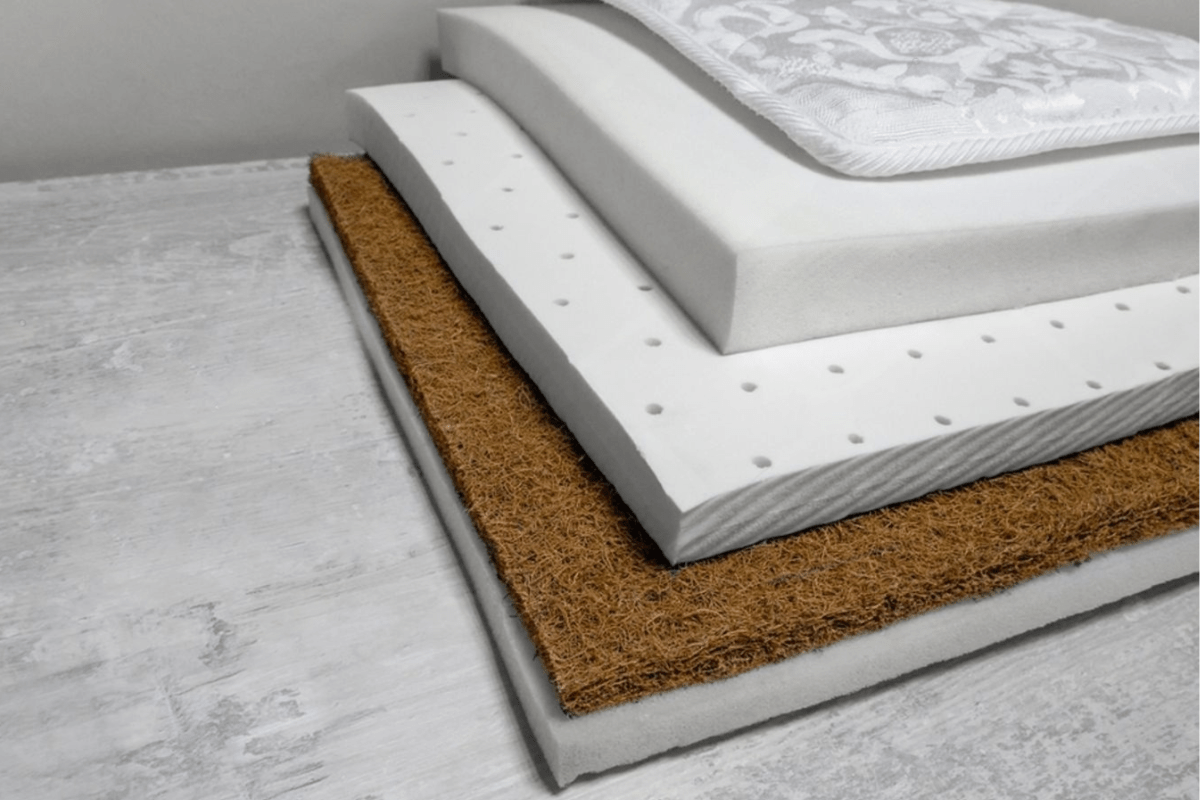
Are Organic Mattresses Better For The Environment?
Organic mattresses are seen as a better choice for the environment because of the materials they use. Conventional mattresses rely on petroleum-based foams and chemical flame retardants. These can harm the environment during production and stay in landfills for centuries, slowly releasing toxins into soil and water. Organic mattresses are made from natural and renewable resources like cotton, wool, and latex. Since they are biodegradable, they break down without leaving behind harmful waste. Many are also made by smaller companies that prioritize ethical production and sustainable farming practices.
By choosing an organic mattress, a person supports cleaner manufacturing and healthier ecosystems. It may not solve every environmental problem, but it helps reduce waste and pollution. It’s a practical way for someone to lower their environmental footprint while investing in better sleep.
Is An Organic Latex Mattress Worth It?
An organic latex mattress gives both comfort and clean materials. Latex molds to the body in a natural way and keeps a cooler feel compared to memory foam. With organic certification, it offers support without unwanted chemicals. Durability is another key point. Many latex mattresses hold their shape and support for close to twenty years. That means fewer replacements and less waste in the long run.
The higher price can be hard to overlook at first, but it balances out when you consider the best organic mattress, the price of an organic mattress, and the availability of where to buy it. For many people, the investment feels worth it.
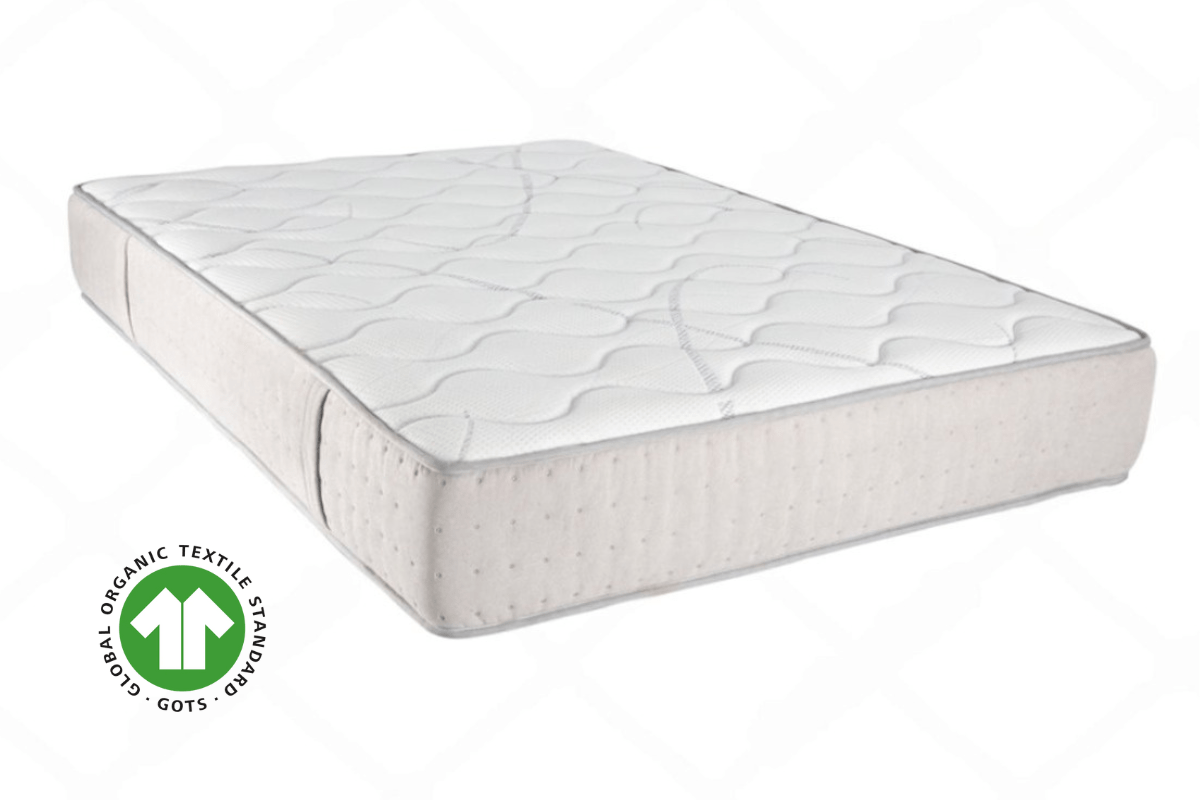
Flame Retardant Chemicals
Most mattresses on the market are made with flame retardant chemicals to meet fire safety standards. At first, this seems like protection, but research shows some of these chemicals are tied to health risks such as hormone imbalance, fertility problems, and even cancer. The concern is not just about comfort but about long-term exposure while sleeping.
Organic mattresses use a different approach. Instead of relying on chemicals, many brands use organic wool, which is naturally flame-resistant. This allows them to meet the same safety rules without adding harmful substances. It’s a safer option for people who want peace of mind about what’s inside their bed.
Choosing an organic mattress means keeping safety while avoiding unnecessary toxins. It shows that there are natural materials that can meet fire standards without risking health. In the end, it’s about reducing exposure to chemicals while still getting the protection required.
Organic Vs Conventional Mattress: What’s The Difference?
An organic mattress uses natural materials like cotton, wool, and latex. A conventional one usually relies on polyfoam and synthetic fabrics. This difference in materials changes the way each mattress feels and how it affects health.
Organic mattresses release little to no VOCs, while conventional mattresses can release higher levels that cause strong smells. For fire safety, organic types rely on natural wool, while conventional models use chemical additives. People with allergies or sensitivities may find the chemicals in conventional beds harder to live with.
Sustainability is another key point. Organic mattresses are made with eco-friendly materials, which are safer for the environment. Conventional options use cheaper, less sustainable methods. In the end, the choice depends on safety, health, or simply cost.
Safe Mattress For Babies And Kids
A safe mattress matters for babies and kids because their bodies are still growing. They are more sensitive to harmful chemicals, so the materials around them should be as clean as possible. A mattress built with natural or organic materials helps lower that risk.
Parents who want safer sleep for their children can look at certifications. GOTS-certified fabrics, organic cotton, and natural latex are good signs of quality. These details show the mattress was made without harsh chemicals that can harm young lungs and skin.
Avoid mattresses that rely on polyurethane foam or other synthetics. Those materials may release gases that aren’t healthy for children. A simple choice like going organic can help give parents peace of mind while supporting safe and restful sleep.

Will An Organic Mattress Help You Sleep Better?
An organic mattress can support better sleep in both the body and the mind. Knowing it is made without harsh chemicals or harmful toxins gives a sense of safety. It’s easier to rest when there is nothing questionable in the materials. The absence of chemical odors or synthetic treatments creates a cleaner sleep space. This helps the body relax without distractions or discomfort. A healthier environment at night can set the stage for deeper rest.
Peace of mind also matters. When someone feels good about the mattress they are lying on, stress lowers. That calm state, paired with a safe and clean surface, allows sleep to come faster and last longer.
Final Thoughts
An organic mattress is not just about comfort. It is about creating a safe space to rest without worrying about hidden chemicals or toxins. Sleep should bring peace, not exposure to things that can harm the body.
Choosing organic materials means healthier air in the bedroom and fewer irritants close to the skin. It also supports sustainable practices, showing care for both the environment and the people who produce the materials. That choice reflects more than personal health—it carries a wider impact.
Yes, the price can be higher. But many see it as an investment in long-term well-being. It protects personal health, benefits loved ones, and respects the planet shared by everyone.

